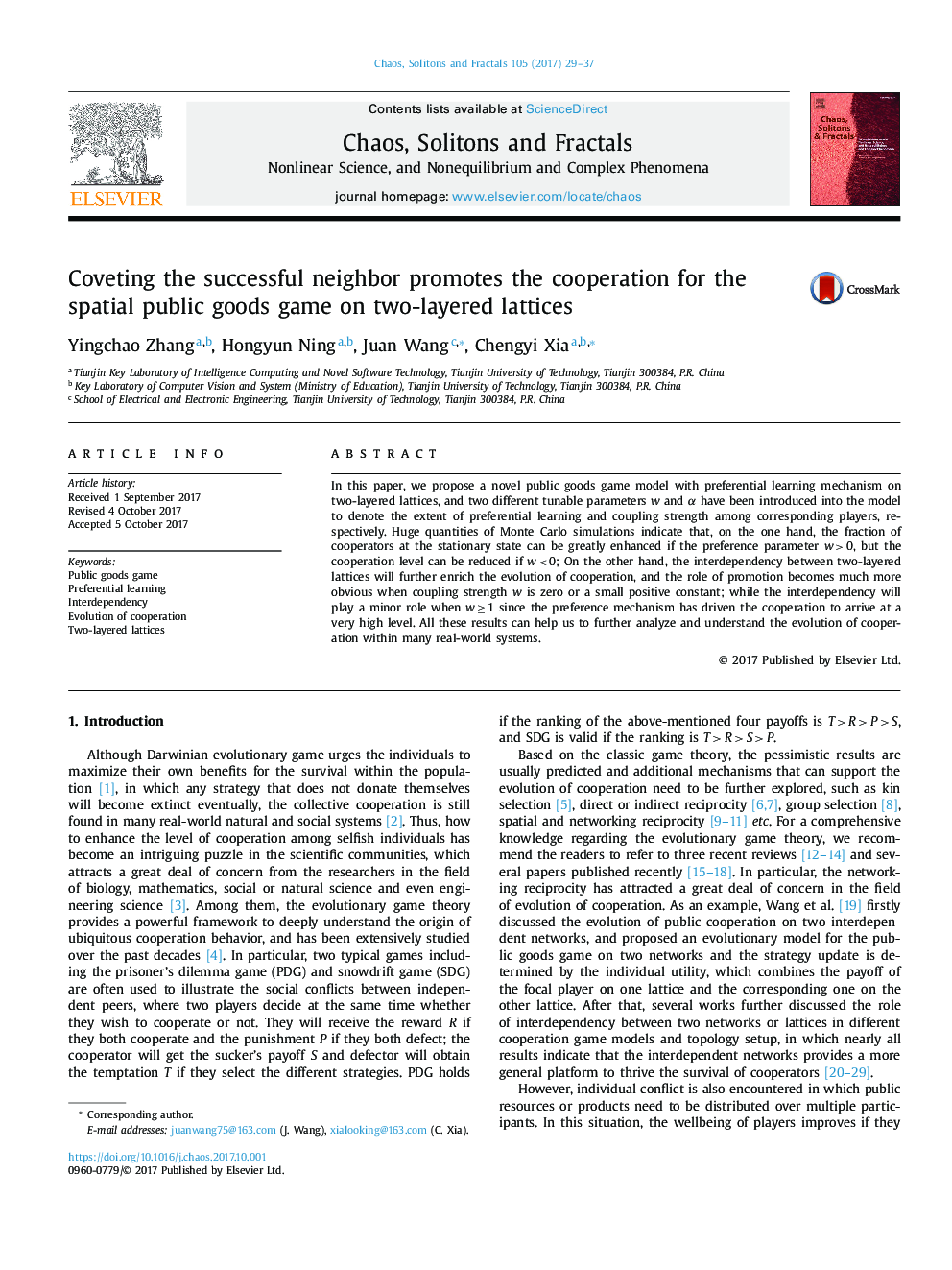| Article ID | Journal | Published Year | Pages | File Type |
|---|---|---|---|---|
| 8254363 | Chaos, Solitons & Fractals | 2017 | 9 Pages |
Abstract
In this paper, we propose a novel public goods game model with preferential learning mechanism on two-layered lattices, and two different tunable parameters w and α have been introduced into the model to denote the extent of preferential learning and coupling strength among corresponding players, respectively. Huge quantities of Monte Carlo simulations indicate that, on the one hand, the fraction of cooperators at the stationary state can be greatly enhanced if the preference parameter wâ¯>â¯0, but the cooperation level can be reduced if wâ¯<â¯0; On the other hand, the interdependency between two-layered lattices will further enrich the evolution of cooperation, and the role of promotion becomes much more obvious when coupling strength w is zero or a small positive constant; while the interdependency will play a minor role when wâ¯â¥â¯1 since the preference mechanism has driven the cooperation to arrive at a very high level. All these results can help us to further analyze and understand the evolution of cooperation within many real-world systems.
Related Topics
Physical Sciences and Engineering
Physics and Astronomy
Statistical and Nonlinear Physics
Authors
Yingchao Zhang, Hongyun Ning, Juan Wang, Chengyi Xia,
